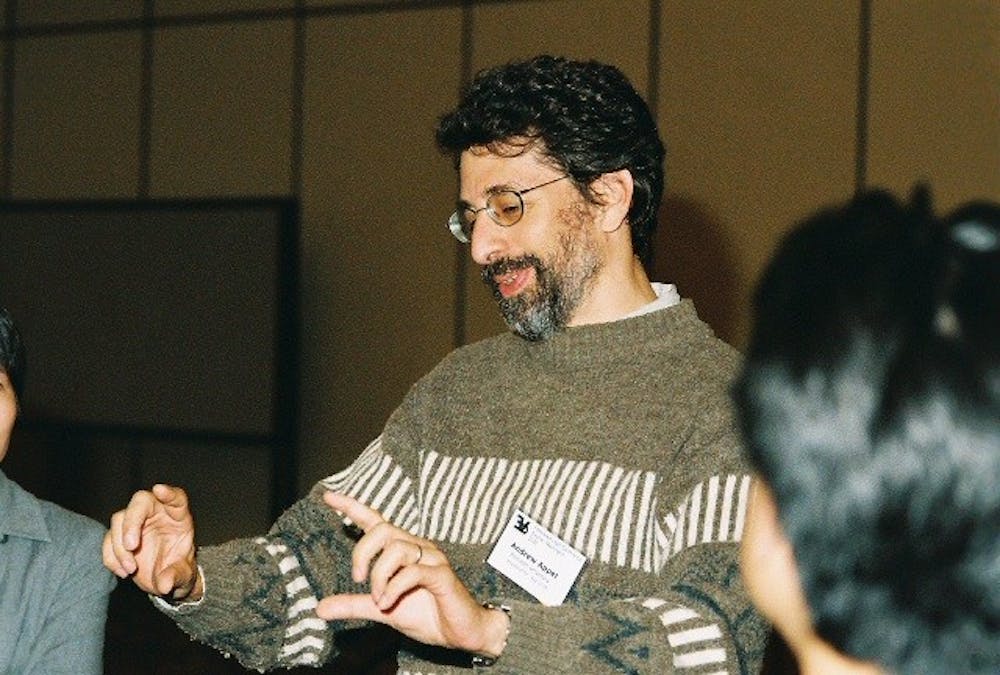A recent lawsuit alleging “massive election fraud” in Georgia and calling for the state’s election results to be disqualified cites Andrew Appel ’81, a professor of computer science at the University, as an “industry expert.” Appel, however, has pushed back against the suit’s use of his past testimony and affirmed the 2020 election’s technological security.
Sidney Powell, a controversial attorney who previously assisted President Donald Trump’s legal efforts to overturn the election, is one of several lawyers representing the plaintiffs. Last month, the Trump legal team distanced itself from Powell, after she voiced a number of unsubstantiated conspiracy theories.
The Nov. 25 complaint challenges Georgia’s use of voting machines created by Dominion Voting Systems Corporation, a company the suit alleges was “founded by foreign oligarchs and dictators to ensure computerized ballot-stuffing and vote-manipulation.”
This claim has been previously debunked.
The seven plaintiffs, five of them Republican electors who will represent Georgia when the Electoral College convenes on Dec. 14, allege that Dominion software is “vulnerable to undetected and non-auditable manipulation.”
“An industry expert, Dr. Andrew Appel ... has recently observed, with reference to Dominion Voting machines: ‘I figured out how to make a slightly different computer program that just before the polls were closed, it switches some votes around from one candidate to another. I wrote that computer program into a memory chip, and now to hack a voting machine you just need 7 minutes alone with it and a screwdriver,’” the complaint reads.
The suit attributes that quote to a study Appel conducted in Dec. 2019. In an emailed statement to The Daily Princetonian, however, Appel clarified that the quote comes from 2018 testimony he gave before the U.S. House of Representatives Subcommittee on Information Technology.
According to Appel, Powell added a footnote “about filing that exhibit under seal.” According to Appel, the exhibit is his publicly available 2019 study, “published for the whole world to see.”
Fox News’ Sean Hannity cited the same excerpt from Appel’s 2018 testimony to support his claim that technical errors plagued voting machines in Michigan and Georgia. In a response, Appel clarified that in his testimony, he was referring to an earlier version of a Dominion machine used in New Jersey.
In the 2018 hearing, Appel testified against the use of all touch-screen voting machines in U.S. elections, citing the ease with which such machines can be hacked.
“Voting machines in New Jersey (and many states) are delivered to polling places several days before the election — to elementary school gymnasiums, churches, firehouses. These are not secure facilities, and anyone could gain access to a voting machine for 10 minutes,” he stated in his written testimony.
Yet, with respect to the 2020 election, Appel told the ‘Prince’ via an email that Powell’s claims have little merit.

“The bottom line is that every vote cast in Georgia in this election was accompanied by a paper ballot that the voters had the chance to review before depositing in the ballot box, and a recount was done by hand of all those paper ballots.” he said, “So although there really can be security vulnerabilities in voting machines (made by Dominion or by anyone else), that paper trail can give us confidence that the votes were counted accurately.”
Appel, along with 58 other election security experts, has signed a statement affirming that the 2020 presidential election was technologically secure. Another signatory is Edward Felten, who holds an endowed professorship in computer science and public affairs at the University.
One day after the lawsuit was filed, Dominion issued a response, stating “[the] federal government agency that oversees U.S. election security verified that there is no evidence that this election was in any way compromised. In fact, they have called it the most secure election in American history.”
Accompanying the 104-page lawsuit are 23 heavily redacted affidavits, which feature a number of dubious claims, including that the state counted ballots in secret, that Chinese and Iranian agents accessed Dominion software, that the state switched “hundreds of thousands of votes” for President Donald Trump to President-elect Joe Biden, that poll workers mismanaged voters’ complaints, and that Dominion — through the company’s director of product strategy and Trump critic Eric Coomer — maintains ties to Antifa.
These claims have been fact-checked and disproved repeatedly.
Defendants in the case are Georgia Governor Brian Kemp, Georgia Secretary of State Brad Raffensperger, and four members of the State Election Board.
Powell’s team is demanding that the court decertify Georgia’s election results as well as take one of following actions: not count the state’s mail-in ballots in the final tabulation, disqualify the state’s electors from voting, or call Georgia’s electors to vote for President Trump. The suit also requests that Georgia’s voting machines be impounded for an “expert inspection.”
No hearings have been scheduled yet.








